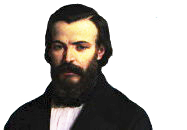





Minutes of the CIAD (Wednesday 14 December 2016)(posted: January 25, 2017)Present: B. Ousset (France), R. Lima (Brazil), J. Pandian (India), L. Tuomey (Ireland), P. Ehiagwina (Nigeria), T. Wilson (USA), E. Tsukamoto (Brazil), R. McGowan (Ireland), U. Mattfeldt (Germany) and B. Fabre (France/staff).
Guests: C. Nabuco (Brazil) and F. Brassil (Australia). Minutes: B. Fabre (CGI staff in Paris). OPENING PRAYER Official prayers of the SSVP were used as Opening Prayers. MORNING SESSION: PRESENTATIONS ON CIAD The morning was reserved to presentations on the CIAD, its work methods and new strategy and vision, by President General, CIAD Chairman and CIAD Coordinator, followed by open discussion. President General Renato Lima welcomed the new CIAD members and presented them, reminding that CIAD is where the core work of CGI is done. The members of the new Commission are very experienced Vincentians with valuable international experience and worldwide coverage. The members will no longer be ‘Correspondents’ as in the past, the Commission will rather be a Consultant group in charge of approving or rejecting the projects, even though the members will keep a closer eye on the countries they come from or they are experts on: These members are:
The Commission will meet twice a year – to limit costs -, in principle in March and September, close to CGI International Board meeting dates to take advantage of the presence of Board members who are also part of CIAD. CIAD’s attributions As a first important change, according to President General’s vision and strategy, CIAD’s scope of work is widened; whereas it keeps its historical responsibilities on “Aid” and “Development”, two additional fundamental areas of responsibility are added on: - The structuration of weak National Councils to strengthen SSVP’s position and efficiency in countries where it is a challenge due to lack of material means, proper organization or formation. - The expansion of SSVP in the countries where it is not present: this is part of President General Renato Lima’s ‘electoral promises’, as more than 60 countries of the world still do not have SSVP Conferences. Work methods The recent creation of the position of ‘Special project Coordinators’ within the international Structure, and next to the 12 ITVPs will ensure more professionalism, better preparation and better follow up of CIAD projects to put donors’ funds to the best use possible for the good of the poor. These ‘experts’ will assist all applying countries set up the most secure and feasible projects, ensure all aspects of project management aspects are dealt with when a National Councils submits a project to CIAD. They will also be following the project during and after their realization, to make sure they keep on the right tracks. Their opinion and support will be required before projects come to CIAD and ITVP’s approval. Apart from this important contribution, CIAD’s process of work will remain similar: budgeted and detailed projects are submitted to CIAD only through the National Council, and with ITVP’s approval. They are then reviewed and decided upon by CIAD during its meetings. An ‘Executive Committee’ of CIAD is entitled to take decisions in-between meetings, in particular to deal with emergencies. Its members are: Bertrand Ousset, Thomas Joseph Pandian, Larry Tuomey and Renato Lima de Oliveira, assisted by Bruno Fabre. Terms Of Reference / Guidelines To clarify all this, CIAD members are now elaborating the “Terms of Reference’ of the Commission and a set of guidelines, which should be done through the first trimester if 2017 and spread around the National Councils, and to be released at CGI June 2017 meeting in Paris. Overview of 2016 work So far in 2016, € 1,065,000 have been spent by CIAD on 59 projects and interventions in 32 countries. Symbolically this is the first time in history CIAD spends more than a million euros. As 94% have been used for Disaster emergency relief and rehabilitation and only 6% on development projects, this is explained partially by three big projects that have been made possible by international generosity: our activities in Lebanon for refugees, as well as our response to natural disasters in Nepal and the Philippines. Open discussion: Follow up: one of the issues that are challenging CIAD is the follow up of projects: especially in the case of development projects, once a project is ‘launched’, it is very difficult for CIAD to follow it up and expertise it. Aside to the work of ‘Special Projects Coordinators’, the idea of using external independent institutions to expertize them has been submitted to the Commission. Whereas the benefits of the solution are obvious, it raises a set of issues of questions, among which funding is of importance. CIAD will be investigating the possibilities and costs of this kind of interventions. The funding of CIAD in general is also an issue, and more with its new widened attributions. Starting from the observation that CIAD’s mainly receives funds after specific appeals launched in case of natural or human disasters, and hardly for development purposes or for smaller scale or less media covered catastrophes, one of the possibilities CIAD is working on is to include more flexibility in the way appeals are launched and funds are affected, or asking countries to do so which would have the double interest of avoiding funds ‘sleeping’ on accounts and giving CIAD more liberty to cover its attributions. This could be done through the newly created ‘FIS’, Fund for International Solidarity. FINANCIAL UPDATE Larry Tuomey reported that there is an amount of 2,762,877 euro currently available to CIAD in restricted accounts which may be summarized as follows : FUND FOR INTERNATIONAL SOLIDARITY : Euro 1,107,462 The make up of this amount (which arises from appeals made by the CGI) is Nepal/Vanuatu (956,761), General Disasters (84,927 ), Iraq (40,789 ), Hurricane Matthew (24,985) SPECIFIC FUNDS (country restricted) : Euro 1 655 415 Africa ( 62,741), AMERICAS (338623), Asia ( 1 253 949), Europe (101 ) Details of the make up of the individual country funds are set out in the papers. The three most significant balances are Philippines ( 1 035 829), Haiti ( 286 171),Lebanon ( 200654) AFTERNOON SESSION: CIAD ORDINARY MEETING FUNDS SENT BETWEEN MEETINGS This meeting is the first one of the new CIAD, since the installation of the new President General. As last meeting took place in July, a number of emergency actions and projects have been supported by the Commission since then. Emergencies: Tanzania: 3,000 euros in September after earthquake – no report has been received yet. Sudan: 3,000 euros in September after floods – no report received yet, but international financial rules have made very difficult for the funds to reach this country. Actually, after several unfruitful tries, we have no confirmation have reached their destination yet. Sri Lanka: 3,000 euros in September after floods – report promised soon Angola: 3,000 euros in September to fight dry spell – A good report has been received; CIAD funds have been completed with $ 1,500 raised locally and have allowed to distribute food baskets to 90 households in three different communities. Iraq: € 2,500 euros were sent in November; the report is awaited, although we have been informed that the funds have been received properly, which is already a challenge not easy to overcome. Haiti: € 2,500 were sent in November after hurricane Matthew hit the country. For the moment, we have no feedback from the national Council. New Zealand: € 3,000 have been sent in November as a matter of solidarity after an historically strong earthquake took place. Costa Rica: After hurricane Otto hit the country, as well as an earthquake almost simultaneously, € 3,000 were sent in December. Indonesia: The usual emergency procedure was used and € 3,000 have been sent last week after the earthquake. Lebanon: an anonymous US Foundation has funded last year – up to October – a wide action of SSVP Lebanon for Iraqi and Syrian refugees in Lebanon. We have confirmation that the grant will be renewed. Nevertheless, funds will only be available in January, and CIAD has decided to send 14.560 USD to cover 2 months of meals for Iraqi elderly refugees, allowing bridging the gap and avoiding that the activity has to stop. Projects: Burundi: CIAD had approved in March a € 33,000 reconstruction and water system rehabilitation project in two phases. As usual, the release of the second phase was subjected to the submission of a report on the first phase. As we received the report in September, the balance of € 15,000 were thus released in October so that they do not have to wait for CIAD’s December meeting to start the second phase. Nepal: the reconstruction programme of SSVP Nepal after the earthquake of 2015, in collaboration with Caritas as stipulated by the government, has been delayed for administrative and legal reasons, but has finally been able to kick-start in early November. 50% of CIAD’s commitment to this huge programme, allowed by worldwide Vincentian solidarity, have thus been released: € 382,000. SUBJECTS FOR DISCUSSION International ReportsMinutes of the CIAD (Wednesday 14 December 2016)
|










